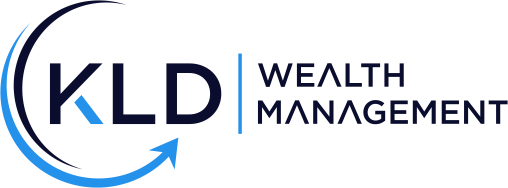Get in touch
Call or Text:
937-404-5180
Email:
dwiedmeyer@kldwealth.com
7 Types of Trusts: How to Use Them and How Estate Planning Can Help
Effective estate planning involves more than just drafting a will. For many, trusts play a pivotal role in managing and distributing assets efficiently. Trusts come in various forms, each serving distinct purposes and offering unique benefits. Understanding these different types can help you make informed decisions that align with your financial goals and family needs.
Here’s a comprehensive guide to seven types of trusts, their uses, and how personal financial planning can help you avoid common pitfalls.
1. Revocable Living Trust
Overview: A Revocable Living Trust allows you to retain control over your assets during your lifetime and modify or revoke the trust as needed. Upon your death, the trust’s assets are transferred to your beneficiaries without going through probate.
Benefits:
- Avoids probate, which can save time and legal fees.
- Provides flexibility as you can change the terms of the trust or dissolve it entirely.
- Offers privacy since the terms of the trust do not become public record.
Use Case: Ideal for individuals who want to ensure a smooth transition of assets to heirs while maintaining control over those assets during their lifetime.
2. Irrevocable Trust
Overview: Unlike a revocable trust, an Irrevocable Trust cannot be modified or dissolved once established, except under certain circumstances.
Benefits:
- Removes assets from your taxable estate, which can reduce estate taxes.
- Protects assets from creditors and legal judgments.
- Can provide income tax benefits if structured appropriately.
Use Case: Suitable for those who wish to minimize estate taxes and protect assets from potential claims or creditors.
3. Testamentary Trust
Overview: Created through your will and takes effect upon your death. It is established to manage assets left to beneficiaries, often for minors or individuals who are not financially responsible.
Benefits:
- Ensures that assets are managed according to your wishes after your death.
- Provides financial protection and management for beneficiaries who may not be able to handle the inheritance responsibly.
Use Case: Commonly used when a testator wants to provide for minor children or beneficiaries who need financial oversight.
4. Charitable Trust
Overview: Designed to benefit a charitable organization or cause. Charitable Trusts can be structured to provide income to the donor or their beneficiaries before the remainder goes to charity.
Benefits:
- Offers potential tax deductions for charitable donations.
- Can provide a stream of income for the donor or beneficiaries before the remaining assets go to charity.
- Supports charitable causes, aligning with your philanthropic goals.
Use Case: Ideal for individuals looking to make a lasting impact on a cause they care about while benefiting from tax advantages.
5. Special Needs Trust
Overview: Established to provide for a person with disabilities without disqualifying them from government benefits like Social Security or Medicaid.
Benefits:
- Allows for the provision of supplemental support for individuals with disabilities.
- Ensures the individual’s eligibility for government benefits remains intact.
Use Case: Essential for families who wish to support a loved one with special needs while maintaining their eligibility for public assistance.
6. Spendthrift Trust
Overview: Designed to protect beneficiaries from their own financial mismanagement and creditors. The trustee has control over the distribution of trust assets.
Benefits:
- Protects assets from being squandered by financially irresponsible beneficiaries.
- Shields assets from creditors and legal judgments against the beneficiaries.
Use Case: Useful for individuals who want to ensure that beneficiaries receive support without the risk of mismanaging or losing their inheritance.
7. Asset Protection Trust
Overview: A type of trust specifically created to protect your assets from creditors, lawsuits, or other claims. These trusts are often established in jurisdictions with favorable asset protection laws.
Benefits:
- Provides robust protection against potential claims and creditors.
- Can be an effective tool for preserving wealth in high-risk professions or situations.
Use Case: Beneficial for individuals in professions with high litigation risks or those who want to safeguard their assets from future claims.
How Personal Financial Planning Can Help
Effective personal financial planning is integral to establishing and managing trusts. Here’s how it can help:
- Strategic Planning: A financial planner can assist in selecting the right type of trust based on your goals and circumstances, ensuring that your estate plan aligns with your overall financial strategy.
- Tax Efficiency: Properly structured trusts can minimize tax liabilities and enhance the value of your estate. Financial advisors can offer insights on tax implications and strategies for optimizing your trust’s benefits.
- Ongoing Management: Regular reviews and updates to your trust, as discussed in our recent blog on estate planning, ensure that it remains relevant and effective as your life circumstances change.
- Avoiding Pitfalls: Financial planners can help you navigate complex trust regulations and avoid common pitfalls, such as inadequate beneficiary designations or tax inefficiencies.
- Holistic Approach: Integrating trusts into a broader estate plan ensures that all aspects of your financial and personal goals are considered, leading to a more comprehensive and effective strategy.
Call to Action
Establishing and managing trusts is a crucial component of a well-rounded estate plan. Don’t leave your legacy to chance.
Contact us today to discuss how we can help you create and maintain the right trusts to protect your assets and achieve your financial goals.
Your future and the well-being of your loved ones depend on it. Let’s work together to build a secure and effective estate plan.





Phone
937-404-5180
706 Deerfield Rd.
Lebanon, OH 45036
Get financial wellness tips, directly to your inbox.
Contact Us
We will get back to you as soon as possible.
Please try again later.
All Rights Reserved | KLD Wealth | Privacy Policy | Form ADV
Advisory services offered through KLD Wealth Management, LLC, an investment adviser registered with the state(s) of Ohio. Advisory services are only offered to clients or prospective clients where KLD Wealth Management, LLC and its representatives are properly registered or exempt from registration.
The information on this site is not intended as tax, accounting or legal advice, nor is it an offer or solicitation to buy or sell, or as an endorsement of any company, security, fund, or other offering. Information provided should not be solely relied upon for decision making. Please consult your legal, tax, or accounting professional regarding your specific situation. Investments involve risk and have the potential for complete loss. It should not be assumed that any recommendations made will necessarily be profitable.
The information on this site is provided “AS IS” and without warranties either express or implied and the information may not be free from error. Your use of the information provided is at your sole risk.
